Highlights of the Week: 5 Big Events in Croatia from May 31- June 6, 2021
June 6, 2021 - TCN's highlights of the week. A look at the events in Croatia from May 31 through the selection of TCN's reporter Ivor Kruljac.
From significant political changes after the local elections to the losses and preparations in sport, the week was hyped by a strive for hope in Croatia. But, the tragic murder of Nino Čengić in Varaždin was a painful kick to the stomach. Here is another weekly selection of the news depicting the bittersweet life in Croatia.
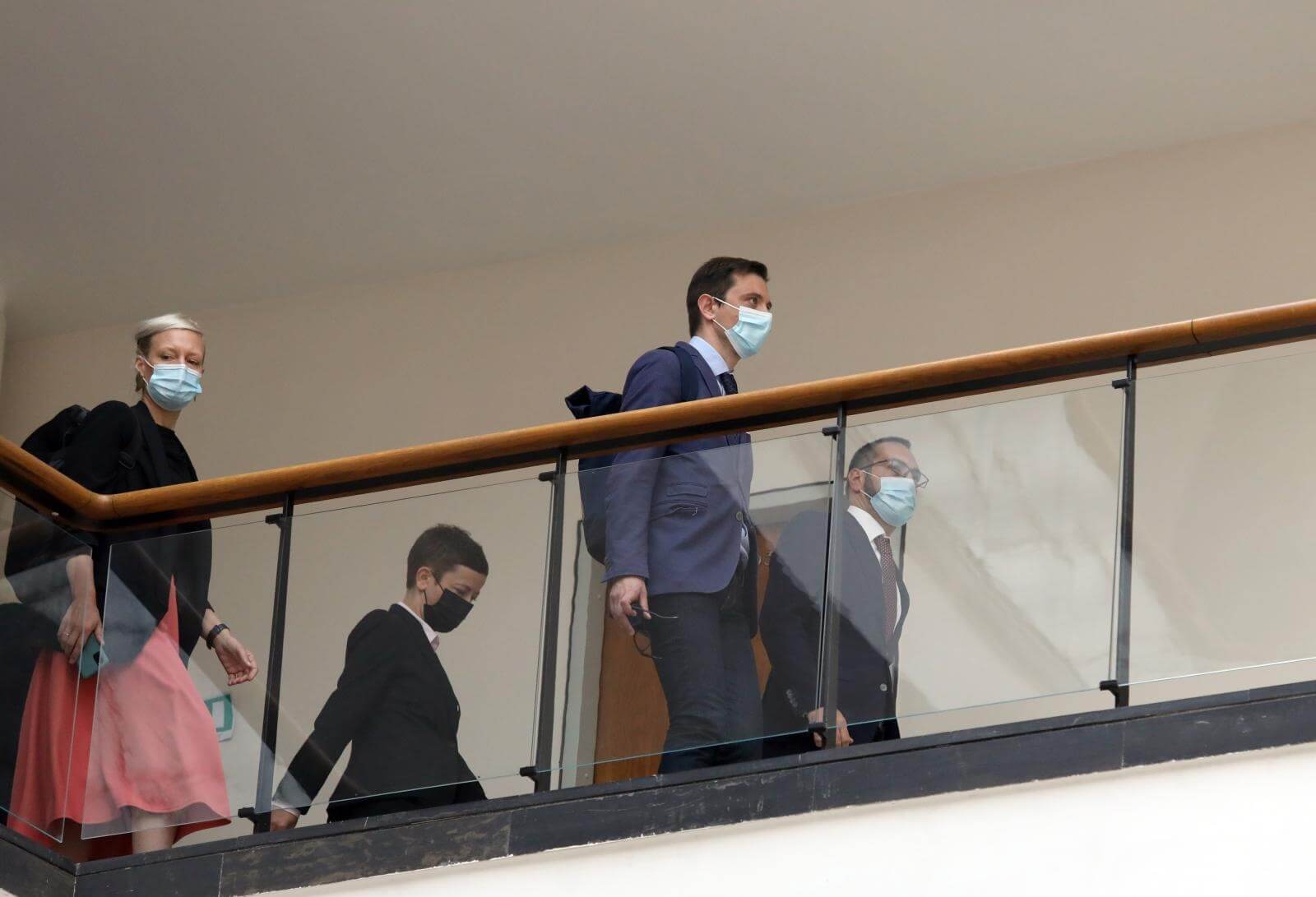
© Patrik Macek / PIXSELL
Highlights of the week: Tomislav Tomašević officially. becomes the new mayor of Zagreb
Zagreb local elections winner Tomislav Tomašević met with Jelena Pavičić Vukičević for an official ceremony of transferring power on Friday, which makes Tomašević officially the new mayor of Zagreb.
Media attention was also caught for the fact that Tomašević was four minutes late to the ceremony because he was waiting for the ambulance on Cibona because a woman fell ill in the middle of the street. But, for the bigger public interest, it's important to note today was the first time for Tomašević to have a detailed view on the financial situation of the City of Zagreb, giving him a clear picture of the debt problem Zagreb has.
As TCN reported earlier, Tomašević told the press after the ceremony that the situation is not good, but there are solutions. Still, so far, no more details were given on the two-thousand-odd-page reports on the 2020 budget execution and preliminary figures. Additionally, the new city assembly would hold the founding meeting on 17 June.
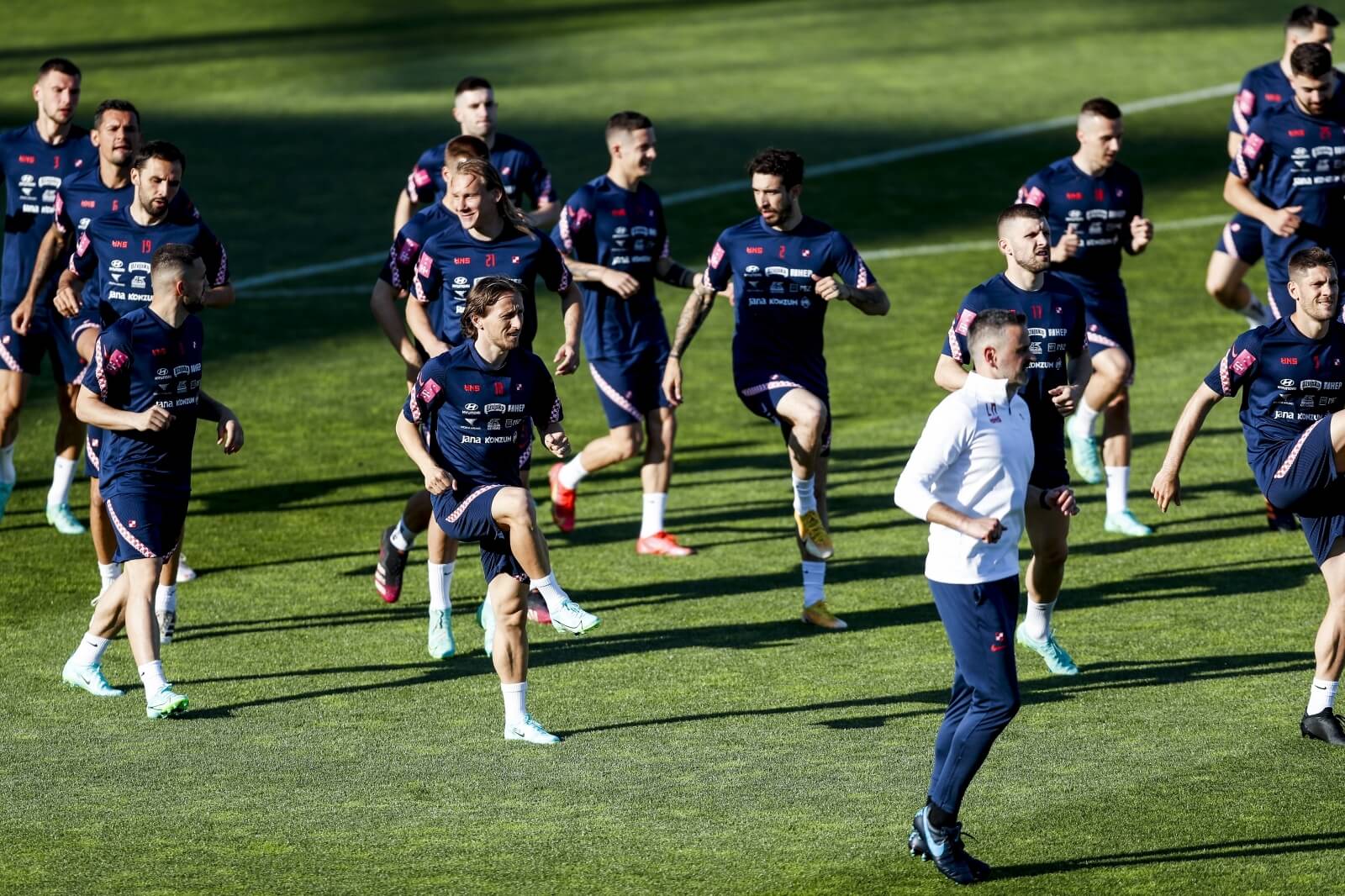
© Slavko Midzor / PIXSELL
Highlights of the week: Zlatko Dalić on Croatian National Football Team
The Croatian National Football Team is preparing for the friendly clash with Belgium. As reported by TCN, Zlatko Dalić faced the press on Friday ahead of the match.
„I am satisfied with everything except the result. We had minor injury problems. We did the rest as expected, but the draw with Armenia left a bitter taste. In that game, we had to win 4-0 or 5-0, not draw 1-1. I am dissatisfied with this result. Plus, we created 5-6 percent chances, and we didn't do that in three games in a row at the beginning of the World Cup qualifiers against Slovenia, Cyprus, and Malta. We were nonchalant and irresponsible and did not realize them. We were not specific, and that is a minus“, said Dalić to the press.
Dalić also pointed out that the national team is aware of its obligation to the Croatian people. He spoke about the problems in the national team, the pros and cons of the draw against Armenia, and the expectations from players who are dissatisfied with their status. One of them is Andrej Kramarić, who, after 20 goals scored in the Bundesliga this season, is not safe among Dalić's starters. A few days ago, he advised the media to ask Davor Šuker what he would say after such a season.
Expectionsare big ahead of the EURO championship, and no doubt fans will pay attention with close interest.
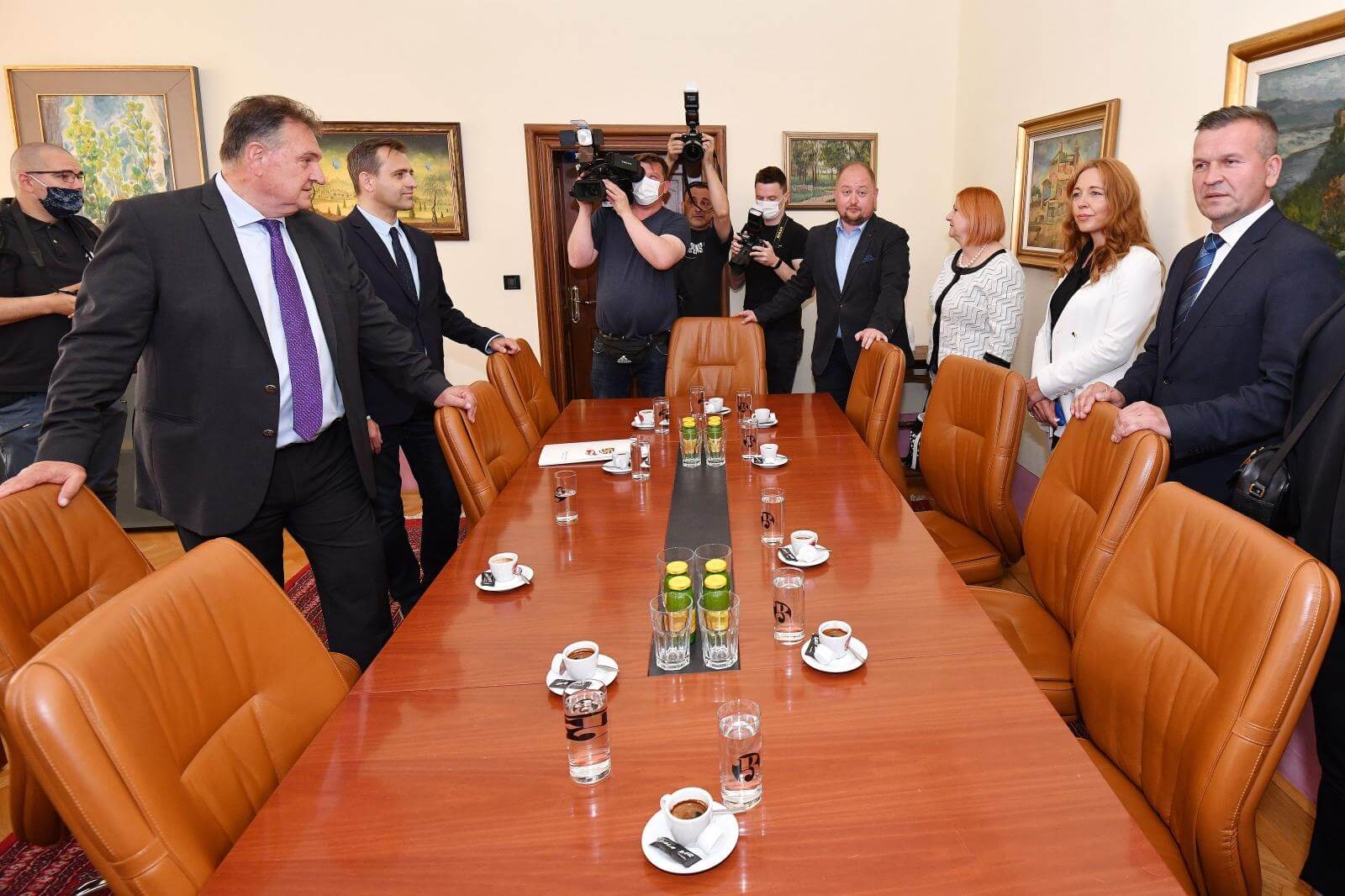
© Vjeran Zganec Rogulja / PIXSELL
Highlights of the week: Anđelko Stričak, new prefect
The power transfer ceremony on Friday also took place in Varaždin where Anđelko Stričak defeated current Varaždin prefect Radimir Čačić.
„The victory is well deserved. In the past nine years as the president of Varaždin county organization of the Croatian Democratic Union (HDZ), and in six years as a member of the parliament, I've been to every corner of Varaždin county and talked to everybody. I heard the needs of our citizens, and I tried to solve them by cooperating with coalition partners on every level. Of course, I'm not the best, most capable or most perfect, but I will try with my team to give my best that everybody in the county feel changes for the better“, said the new Varaždin County prefect Stričak, as reported by Varaždin county's official website.
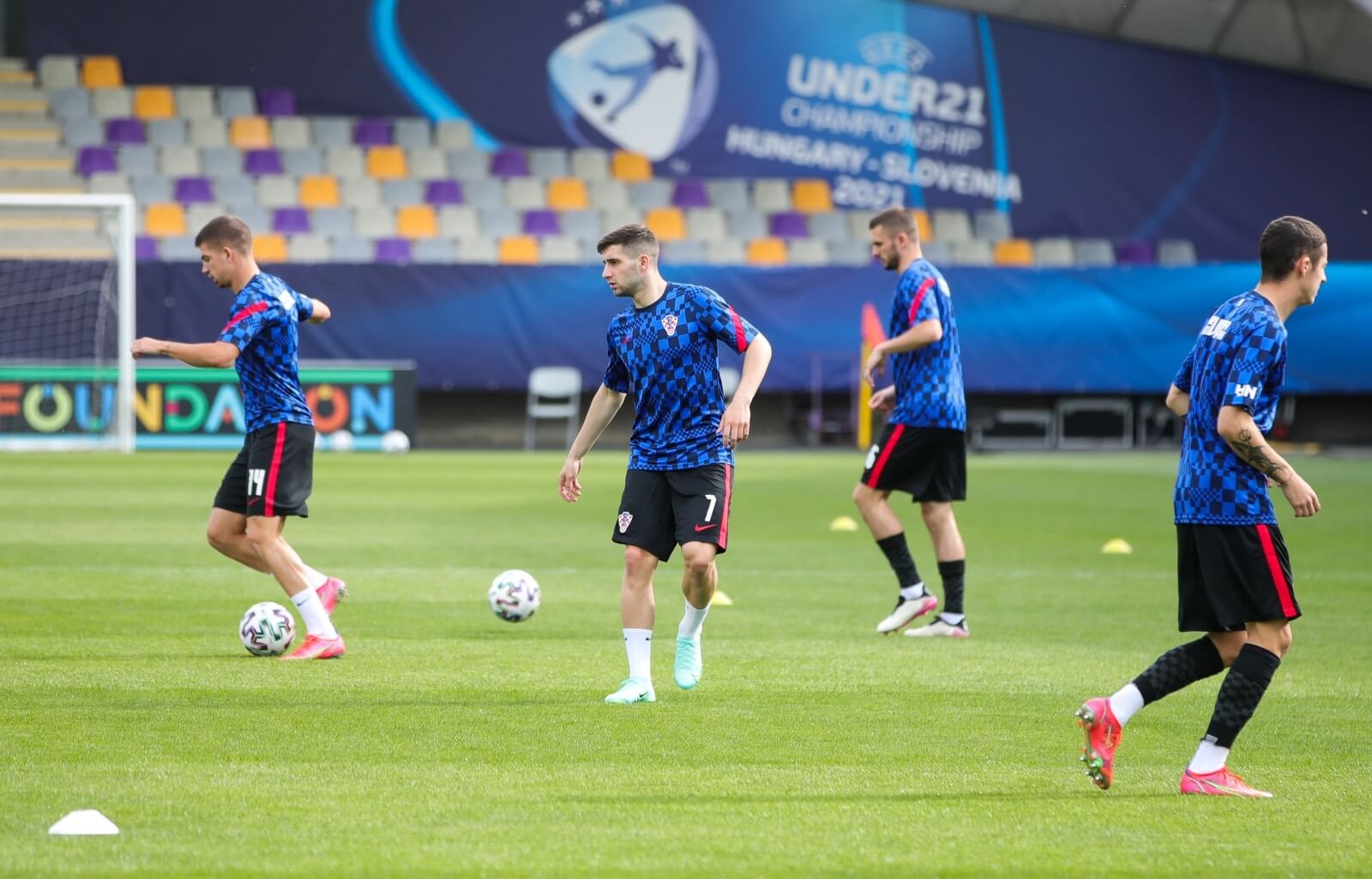
© Sanjin Strukic / PIXSELL
Highlights of the week: Croatia Loses to Spain in the Under-21 European Championship
Spain was better than Croatia after extra time in the Under-21 European Championship quarter-final in Maribor on Monday. The match ended 2:1. As reported by TCN, Croatia was solid in the first half and threatened the Spain goal on a few occasions. Despite Spain's high pressure, Ivanušec had a chance from 20 meters in the 7th minute, and in the 23rd, Bradarić's shot was blocked by the Spain defense. Spain retaliated with a Diaz shot from 20 meters, but Croatia's defense made it difficult for them to do much more.
The young Croatia national team fought against Spain for a spot in the semifinals.
Igor Bišćan's side met Spain at Ljudski Vrt stadium in Maribor.
"The guys are aware that we have a great chance, they are motivated to do something, and we are all around them to give them that chance and be supportive. They have quality," Bišćan announced before the match. 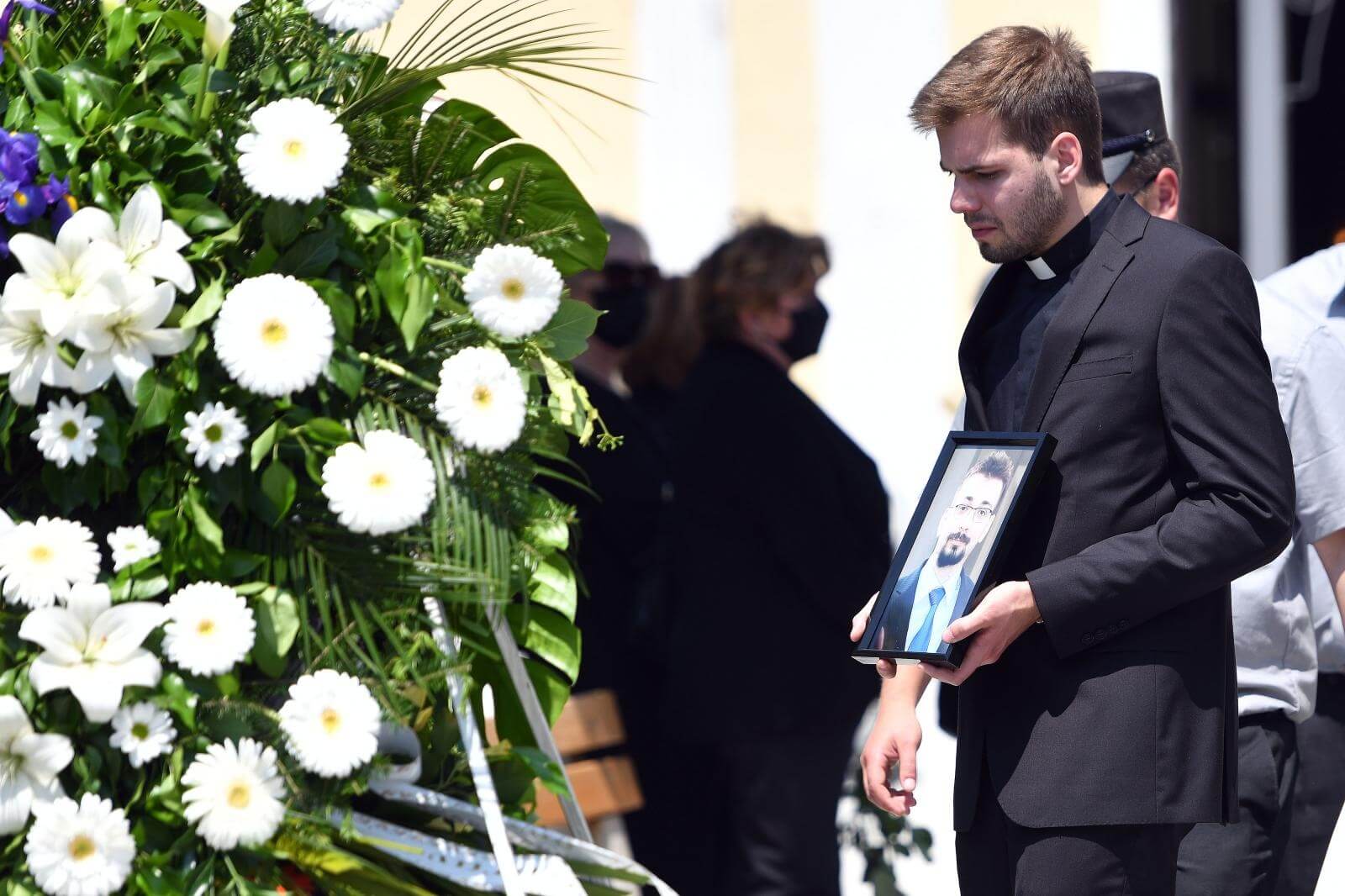
© Vjeran Zganec Rogulja/ PIXSELL
Highlights of the week: Nino Čengić funeral in Varaždin
The Funeral of the English professor Nino Čengić who passed away last Sunday, was held on Wednesday. Nino Gengić, a substitute English professor in one Varaždin school, was brutally beaten with bats and chains in front of the local club in Varaždin called Kulturana. He was 35 years old.
As Jutarnji List reports, four suspects aged 24-29 are currently in custody while the investigation is ongoing as to what lead to this attack. Suspect's apartments were searched, and one suspect illegally possessed a considerable amount of ammo and fire weapons to match. All suspects were previously known to the police for troubling behavior, and the most tragic was the fact that 15 people witnessed the beating, but nobody stopped it.
To learn more about Croatia, have a look at our TC website.
For more about news in Croatia, follow TCN's dedicated page.
Best Zagreb Mayor By Historians: Historians Shouldn't Rate, But Većeslav Holjevac Takes Lead
May 11, 2021 - Ahead of the local elections, following the death of Milan Bandić and troubling issues Zagreb is facing at the moment, TCN reporter Ivor Kruljac wondered who is the best Zagreb mayor by historians.
With the local elections happening in Croatia this Sunday, just as every year, 2021 is no exception, with all eyes directed on Zagreb. This is no surprise, given that, for better or worse, Zagreb is the capital city, the center of politics, culture, science, education, and the spot where Croatians from other smaller towns, villages, etc. come in search of a job and new opportunities. You may not necessarily need to leave the country to leave your dreams, and despite other regions of Croatia slowly but surely developing, Zagreb is still considered by many as the necessary place to go to achieve something.
And this year, the eyes are even watching in even bigger suspense; Milan Bandić, who was the first man of the city for 20 years, passed away in February. The ever-controversial political figure (now replaced by his deputy Jelena Pavičić Vukićević, who also runs in the elections) suspected of corruption, being arrested during his mandate and on several trials, left lots of unresolved issues which the new mayor will have to address in the city's administration. Additionally, the current corona crisis caused some new challenges, and last year's earthquakes and city reconstructions are still a hot political topic among citizens.
Zagreb: History of overcoming the crisis
Challenging circumstances in 2021, no doubt, but certainly nothing Zagreb isn't used to. While settlements on the city's territory date earlier, the first mentions of Zagreb are linked with establishing of Capitol Diocese in 1094. Since then, diseases, earthquakes, floods various wars (WW1 and WW11 included, as well as the 90s war Croatians commonly refer to as the Homeland War), disrupt the peaceful life of Zagreb citizens. The city still stands. But of course, these different troubling contexts were handled not just by citizen's persistence but also by the city's authorities and leaders.
Throughout the turbulent history, Zagreb had, concluding with current deputy Jelena Pavičić Vukičević, a total of 53 mayors. The first one was as, Povijest.hr writes, Janko Kamauf, whose term lasted six years, from May 15, 1851, to 1857. He was a former city judge of Gradec, a title whose authorities basically made him the mayor of Gradec. Following the unification of rival Gradec and Kaptol into one city in 1850, he was elected to be the first leader of a city whose population at the time counted 16,036 people.
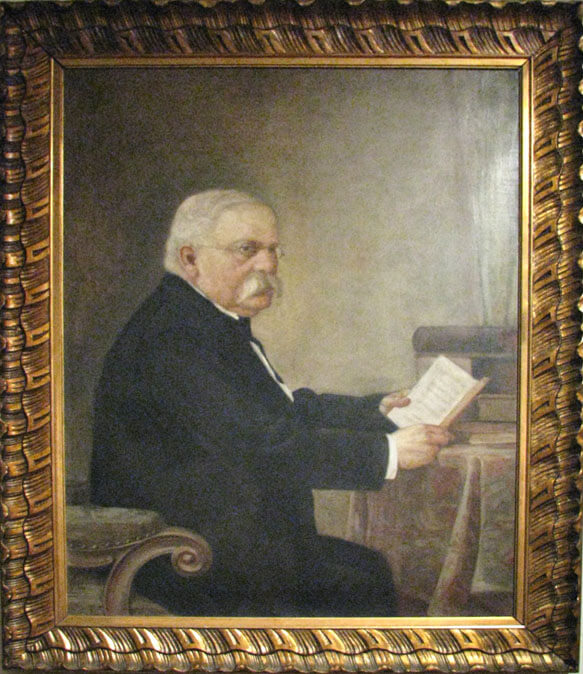
Janko Kamauf painted by Bela Čikoš Sesija, showcased in Zagreb City Museum © Unkown author, Wikipedia
He was the first, but was he the best?
I asked several historians if could they rate and pronounce in their opinion, with regards to the specific contexts, who was the best Zagreb mayor, from Kamauf to Vukičević Pavičić.
Two votes for Većeslav Holjevac!
„I'm not into grading, that's not a historian's task. Our task is to explain and put on the table facts and context of events“, said Ivo Goldstein when I asked him about the best mayor of Zagreb.
Ivo Goldstein may be best known to the Croatian public as a harsh critic of the far-right and the fascist regime of the Independent State of Croatia. As a Historian, he took an interest in various topics related to Croatian history.
At the start of his career, his focus was on Byzantine Empire and Croatian Middle Age History as well as the history of Jews in Croatia. In mid 90's he moved to the various aspects of Croatian history in the 20th century.
He was a professor of various history courses „General History of the Middle Age“ (1984-2003), history of methodology (1991-1996), and many more and today a full-time professor at the Department of History on The Faculty of Humanities and Social Sciences, the University of Zagreb (where he mastered and later completed his Ph.D. thesis at the Faculty of Humanities and Social Sciences, University of Belgrade).
Goldstein's scientific papers received positive acclaim in various countries worldwide, he hosted various projects scientific projects and associations and is very active in Croatian public space when it comes to historical issues that shape the ideas and decisions of current policies in Croatia.
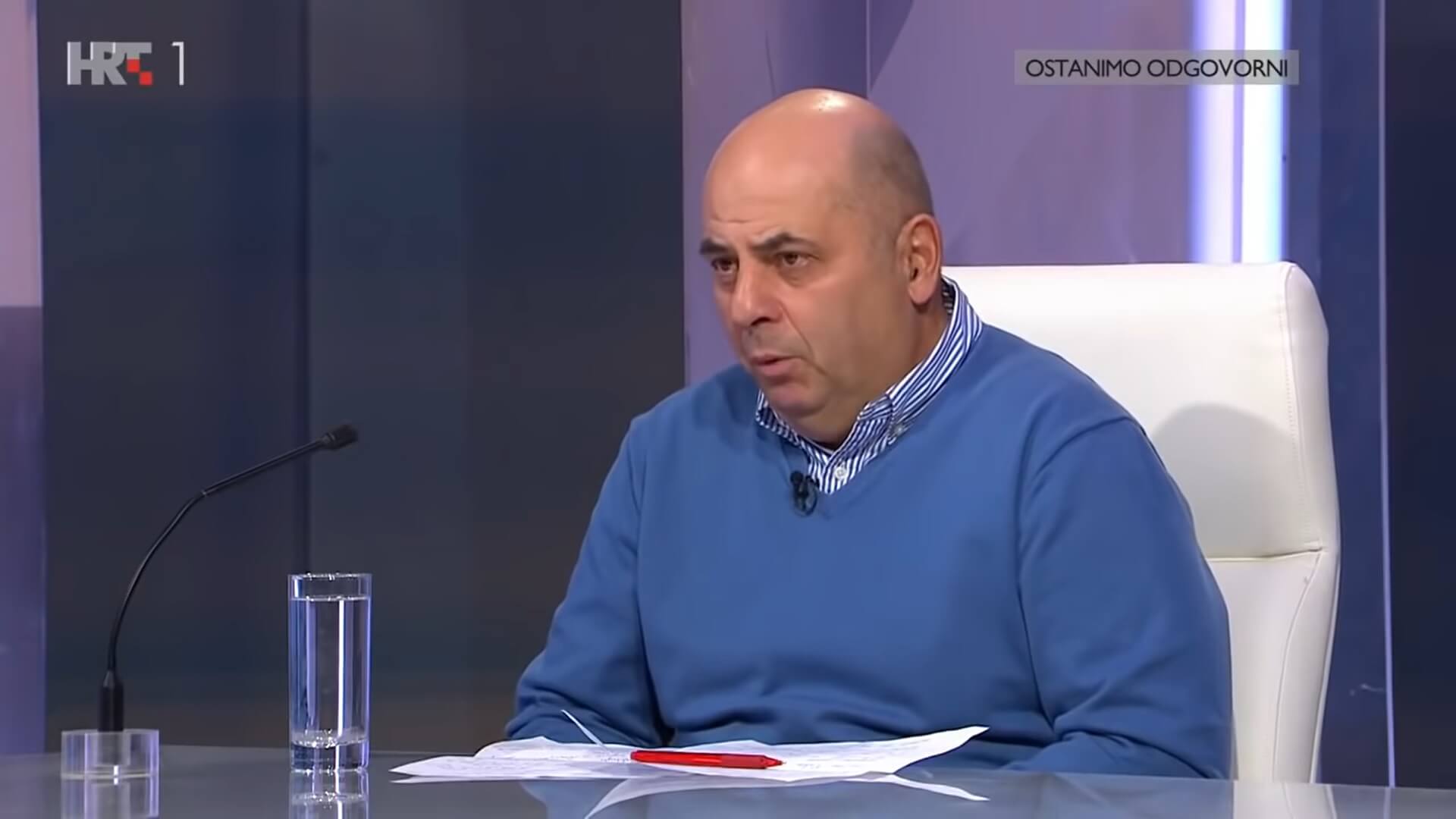 Ivo Goldstein / screenshot HRT Nedjeljom u 2
Ivo Goldstein / screenshot HRT Nedjeljom u 2
Upon explaining the role of historians, professor Goldstein nevertheless didn't mind giving his personal opinion.
„For me, there is no doubt that the best mayor of Zagreb is Većeslav Holjevac“, said Goldstein.
Većeslav Holjevac was the Mayor of Zagreb from 1952-1963 and his eleven-year mandate saw Zagreb develop and spread as the city.
„At that time, Zagreb was the capital city of Socialist Republic of Croatia, which was part of Yugoslavia. Holjevac saw a boost by liberal politics, it was the time of growth and optimism and Holjevac knew how to use it. He was a man of action and used Yugoslavia's opening to the world to Zagreb's benefit“, explained Goldstein.
He added that Holjevac didn't want to be perceived as some sort of transmission of higher state authorities. He didn't hide behind forums and was an independent, free-minded politician, which made him known and beloved among citizens.
„But it made him unloved among the higher power of authority which ended his mandate, although we historically don't know the real reason why Holjevac stopped being mayor“, Goldstein pointed out the mystery which is yet to be cleared up by historians.
The key term of Holjevac's mandate is the General Urban Plan which saw the development of the Most Slobode (Bridge of Freedom), expansion of Zagreb city to south across Sava river, and what today is Novi Zagreb (New Zagreb), as well as building up Zagreb Airport.
„Holjevac knew how to surround himself with good associates who were both dreamers and experts. Holjevac also engaged himself in the projects and his associates felt safe and that he got their back“, explained Goldstein.
The best example of that boldness and visionary approach can be seen in the Zagreb fair which was at that time located at the place of today's Student Centre in Savska.
„The fair needed expansion but was surrounded by railroad tracks everywhere, and the question was how to expand it. There were several options, but Holjevac decided to take it across the Sava river, and it happened. It was quickly constructed, and the first fair on newly build location was the Autumn fair in 1956. and it was the biggest event of its kind in the world back then“, said Goldstein, gladly adding he even had a chance to meet Holjevac as a 12-year-old since the mayor knew his father, an established Croatian intellectual, and politician, Slavko Goldstein.
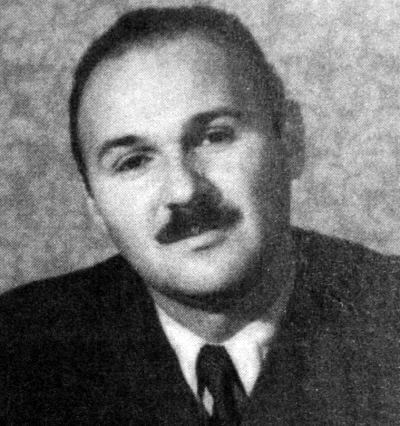
Većeslav Holjevac © Udruga Kameleon / Wikipedia
Hrvoje Klasić was professionally most occupied by Većeslav Holjevac, so he also shares Goldstein's opinion about Većeslav Holjevac.
„In a sentence: Zagreb has never been more developed as it was after Holjevac“, summarized Klasić.
Hrvoje Klasić graduated in 1997 from the Department of History, Faculty of Humanities and Social Sciences at the University of Zagreb. At the same University, he defended his dissertation entitled “1968 in Yugoslavia. Socio-economic changes in an international context”. Since 2003 he has been employed as a professor at the same Faculty and University.
Today, he holds a number of courses related to the world and national history of the 20th century.
Hrvoje Klasić also won the Annual Award of the Association of University Teachers and other Scholars in Zagreb in 2006. That same year he won the Annual Award of Sisak City for the Book „Croatian Spring in Sisak”. He is the author of 3 more books and the author of two documentary series „Croatian Spring“, and “The Independent State of Croatia” produced by Croatian Television. In 2017 The Serb National Council in Croatia gave him an award for the improvement of Croatian-Serbian relations. In 2019 he won the Award for the promotion of peacebuilding, nonviolence, and human rights.
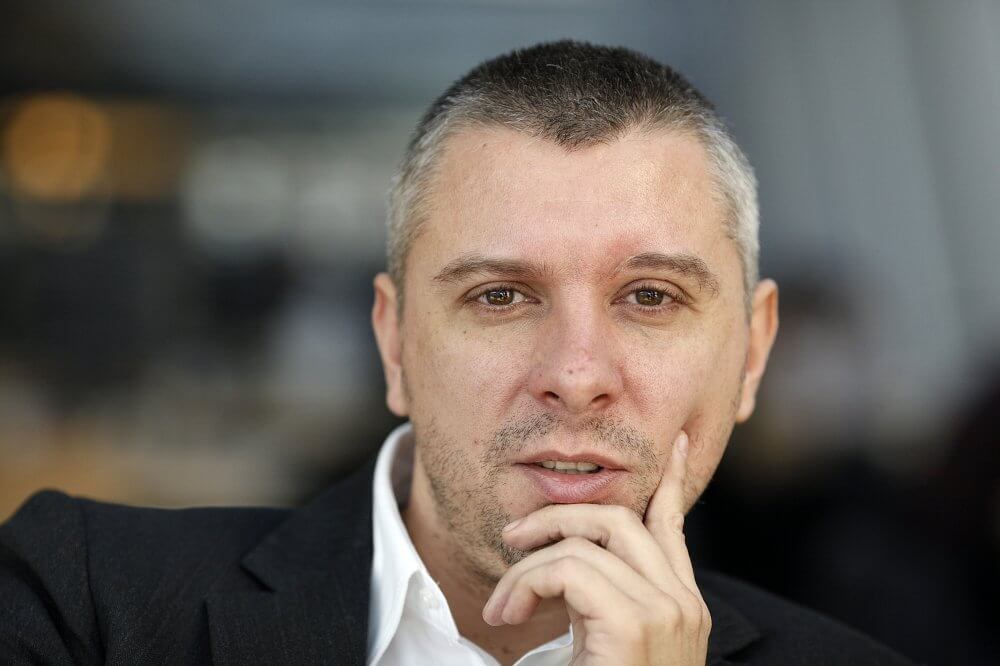
Hrvoje klasić © Hrvoje Klasić
„Most people don't know that Holjevac technically wasn't a mayor, rather he was a president of the City's National Council“, explained Klasić the precision of the functions in the previous Yugoslavian state. He added that while his term lasted from 1952-1963, that is only partially true because he was first appointed to lead Zagreb in 1945.
„In 1945, he was named the city commander who was a military function but he was also in charge of food, traffic, working with several refugees after World War 2 until he gave the control over to civilian bodies“, describes Klasić.
Holjevac then moved on to be the minister of work and traffic in the Social Federal Republic of Croatia. However, at that time, Yugoslavia was going under a change in its political institutions by the self-governing policy which went under parole „factories to workers, cities to citizens“, and as a result, Holjevac 's ministry was shut down. His return to the top position in Zagreb happened without him even knowing.
„As part of self-governing, the Communist Party in Zagreb searched for someone who isn't just going to execute orders from above but instead is an individual that has quality, creativity and will make its own decisions. Holjevac was elected during a meeting he wasn't even present on, and some members of the party were worried is it smart to give Zagreb to a person who is from Karlovac“, said Klasić.
As Goldstein already mentioned, his term lasted over a decade, and Klasić adds that was a very unusual duration at the time.
While Goldstein already mentioned the traffic connections of Zagreb, Klasić said it is very hard to count everything Holjevac built, but he put focus on the industry. Industrial plants of organic-chemical industry, Zagreb heating plant, industrial plants of Pliva pharmaceuticals, Chromos paint company, Kemika, Zvijezda company, Katran, Badel company for alcohol spirits, an ice rink on Šalata, winter pool and gymnastics gyms on Mladost, Yugoton record company, Jadran Film, TV tower on Sljeme, Zagreb drama theatre, an emergency room in Draškovićeva, various elementary and high-schools, and began construction of Vatroslav Lisinski concert hall and more.
„Before Holjevac, there were 40,000 workers in Zagreb. After Holjevac, there was 110,000“, said Klasnić to illustrate the results which made the city the strongest industrial center in Yugoslavia. Apart from industry, Holjevac put a lot of focus on culture and education, as evident by building Workers University Moša Pijade for adult education (today's Public Open University Zagreb) and culture.
Holjevac's „Jump over Sava“ was done on the one hand to prevent interventions in old Zagreb, and on the other, the organizational construction of Novi (New) Zagreb saw the workers live close to the newly built factories.
As Goldstein already referred to Zagreb Fair as perhaps the most significant project of Holjevac's mandate, Klasić added that the unique geopolitical position of Yugoslavia as the bridge between east and west, thanks to the non-aligned movement, made the fair a key place worldwide.
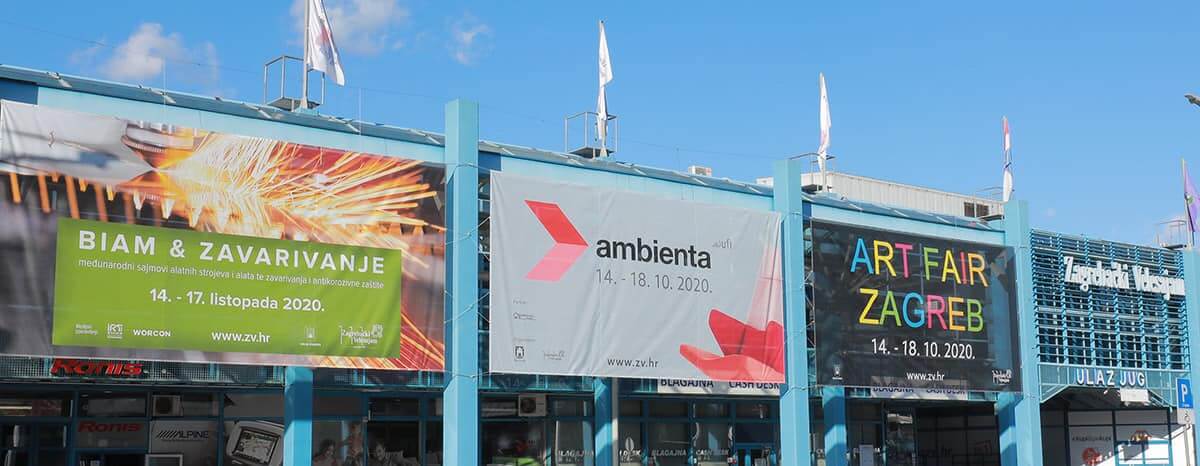
Southern entrance of Zagreb Fair in 2020 © Zagrebački Velesajam
„The fair was not just important for holding exhibitions, but for making deals and signing contracts as well. Given Belgrade was the capital of Yugoslavia, there were pressures to have such a fair there, and there were even boycotts from Belgrade to Zagreba Fair events. However, Holejvac being both persistent and enjoying support by the Yugoslavian president Marshall Josip Broz Tito, managed to keep this significant place in Zagreb“, explained Klasić.
When asked about resentment of other politicians, and the unclear mystery of concluding his mandate, Klasić said he had a chance to look at archives about Holjevac while working on an exhibition about him, and he feels that the situation is much simpler.
„Holjevac basically left due to the same politics that got him to be the mayor in the first place. The Self-Governing model started descending to the lower levels of the system and started searching for creative people. In 1963, a new constitution was brought that further developed the political system to give City Assembly more power accenting the community governing Zagreb. Holjevac's president of City's National Council title has shut down, and the president of Assembly became the first man of Zagreb.
Rotation of politicians as well as limited mandate time was arranged too“, explained Klasić.
He added, however, that it is problematic that an experienced, capable, brave, and brilliant man like Holjevac wasn't put to better use after he stopped being mayor and played bigger roles in Yugoslavian political life.
There isn't the best, only good and bad mayors
Unfortunately, other historians, I contacted (and of course, I couldn't contact every single one, who knows who else might be interested to participate), didn't respond to my inquiry. While Ivo Goldstein explained rating mayors isn't historian's job, Stevo Đurašković, professor at the Faculty of Political Sciences in Zagreb, further elaborated the problem of my question.
„I'm not a fan of such an approach to the topic like it's a miss pageant. In Zagreb's history (as in good portions of cities around the world). There were several great mayors, again, each in its own historical context“, explained Đurašković.
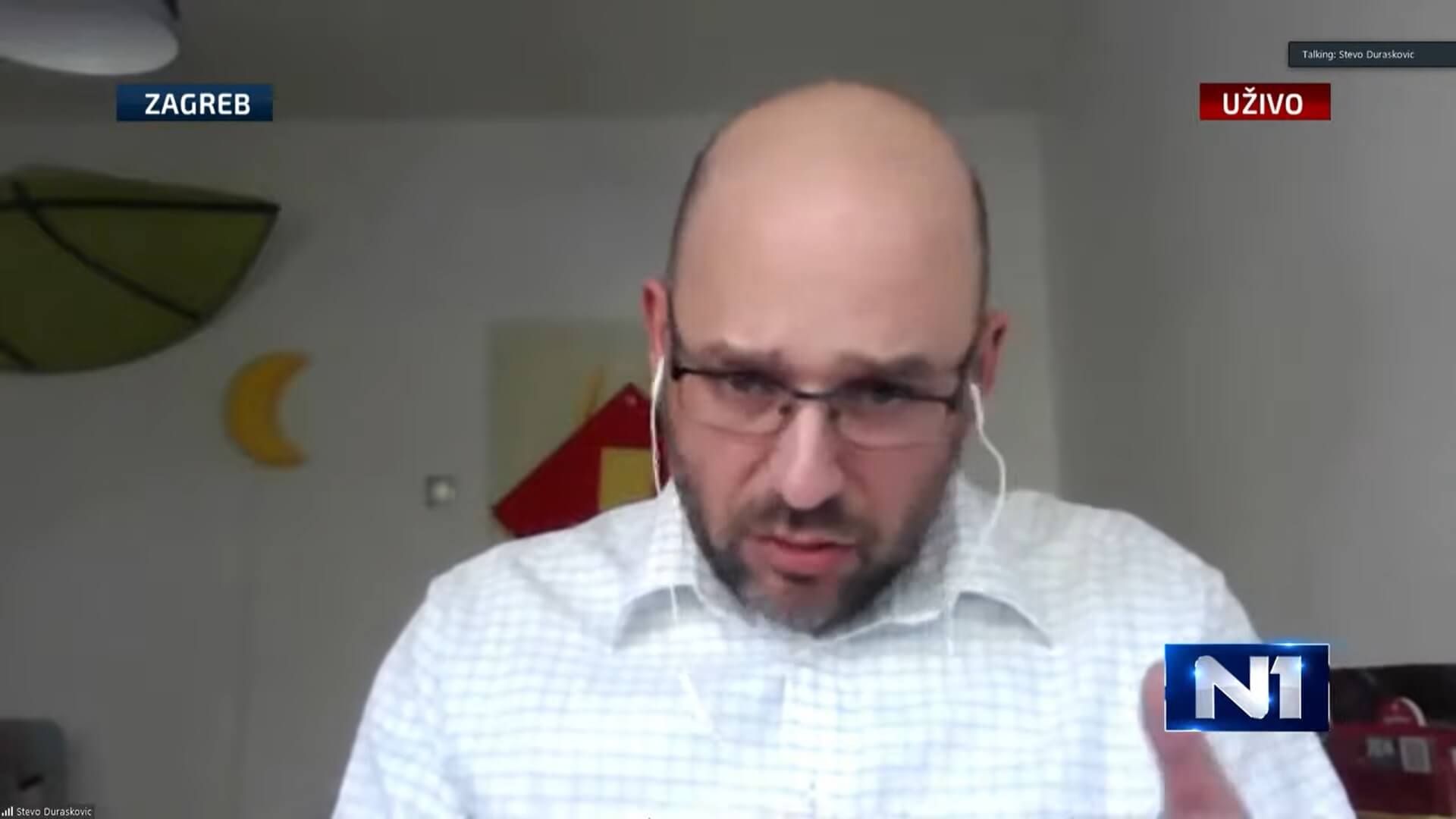
Stevo Đurašković, screenshot / N1
Stevo Đurašković is an Assistant professor at the Faculty of Political Sciences, University of Zagreb, where he teaches courses in politics of history and Croatian history. He received his Ph.D. in Political Science from the Faculty of Social Sciences at the University of Ljubljana and his MA in Central European History from the History Department at the Central European University, Budapest. His research interests include the politics of history, intellectual history, and national identity-building processes in East-Central and Southeastern Europe. Recently he published the book The Politics of History in Croatia and Slovakia in the 1990s (2016). Participated in several international projects, including “Identity Reader: Regional Identity Discourses in Central and Southeast Europe, 1775-1945” (CAS, Sofia). He is a member of the editorial board of the Cultures of History Forum (Imre Kertész Kolleg, University of Jena). In 2009/2010. He was a Ph.D. research fellow at the Faculty of Economic and Social Sciences, Comenius University, Bratislava (CEEPUS grant, Visegrad Fund grant).
In other words, an expert in his respective field with a valid and knowledgeable opinion.
„Milan Amruš and Većeslav Holjevac were great mayors. How to determine if Amruš's development of pre-war Zagreb is greater than Holjevac's post-war development of Zagreb?“ concluded Đurašković his decline to comment who would be the best mayor of Zagreb.
Speaking of Amruš, he was Zagreb mayor in two separate mandates, the first one lasting from 1890 to 1892 and the second from 1904 to 1910. Lice Grada reports that some of the accomplishments in Maruš terms include electrification of the city, and building up Munjara Power Plant (in 1906 and 1907). Under Amruš's mandate, the website continues, horse trams were replaced by electric trams in 1909 and new tram lines and the expansion of the previous one from Ilica to Topnička Barracks were constructed. In addition, 1890 saw lower and upper Zagreb connected by a funicular.
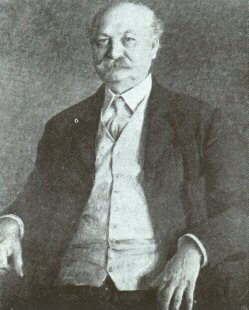
Milan Amruš © Unknown author Wikipedia
Đurašković also added in his decline that Pero Pirker is often „a forgotten mayor“, and Klasić mentioned him as the Holjevac's successor. Mentions of Pirker are also noted on Nacionalne Manjine (National Minorities) site that declared Pirker as a noted Zagreb mayor.
"There is no doubt that Pirker is one of the most capable, most successful, and in its time an extremely popular mayor. But it is stunning that for political reason, considering he was one of the established champions of Croatian Spring in 1972, his work was completely silenced not only until the 1990s but also later“, wrote Goran Beus Richembergh for Nacionalne Manjine.
It's worth noting that the Croatian Spring was a reawakening of national identity which paved the way for the country's independence and the dissolution of Yugoslavia, on which TCN reported on its 50th anniversary earlier this year.
In Pirker's time, the Great flood that sank Zagreb in 1964 was truly the historical challenge of his mandate.
„It was a natural disaster of great extent, and the entire previous state (Yugoslavia) was involved in sanitation and help was arriving from all over the world. But, the biggest responsibility for the coordination of help, sanitation of the damage, taking care of the casualties, and building new homes was carried out by Zagreb's authorities, lead by Pirker who showed to be a skillful manager and successful in various projects“, described Beus Richembergh.
Amruš had the challenge to electrify Zagreb to keep up with other European capitals, Holjevac had the challenge of restoring and developing the city post WW2, and Pirker had the flood.
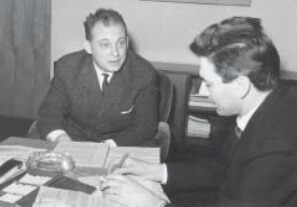
Pero Pirker (on the left) © Croatian Journalist Association / Wikipedia
Both corona and earthquake, as well as the mess suspected to find post-Bandić, are all just another challenge in the history of a town that is used to be challenged and always dancing victory laps.
While Đurašković explained comparisons of what was the most difficult challenge and who was the best mayor make no sense, Goldstein and Klasnić presented their pick. But, as respectable historians they are, they emphasized that it is their opinion and not an empirical fact, even though their arguments are both knowledgable and well explained.
In the end, politics should be about making people's lives better and not about chasing crowns or historical acknowledgments. And as Zagreb really needs a quality leader, the only logical conclusion is: may the best candidate wins, and may purgers recognize the best man or women for Zagreb to once again wave the middle finger to the aftermaths of the recent crisis as it overcomes them.
Learn more about Zagreb on our TC page.
For more about history in Croatia, follow TCN's dedicated page.


